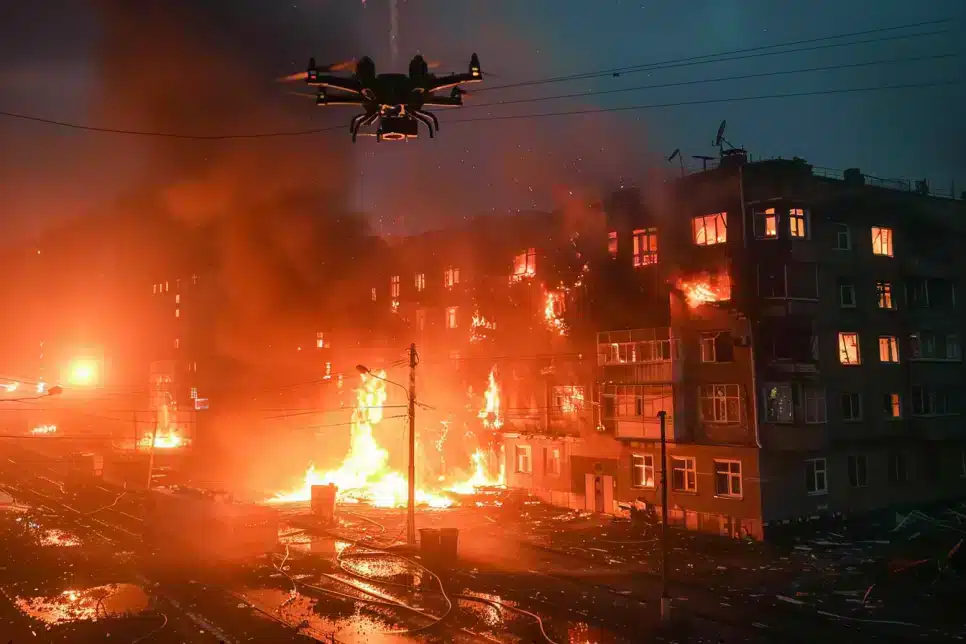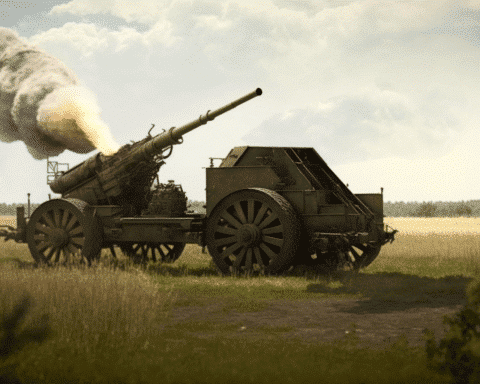In a harrowing escalation of conflict within Ukraine, Russian forces have intensified their campaign against civilian areas in Kharkiv, Ukraine’s second-largest city. The recent drone attack has tragically claimed four lives and marks a significant step in Russia’s strategy for the ongoing war. According to local authorities, the onslaught involved Shahed drones targeting residential buildings and a power plant, illustrating a disturbing trend in the Kremlin’s military operations. This tactic, mirroring strategies used in Syria’s civil war, aims to incapacitate first responders through a “double tap” method, where another quickly follows initial strikes to target rescue workers.
The increase in aerial barrages by Russian forces is part of a broader strategy to probe Ukrainian defenses ahead of a projected large-scale offensive in the summer. The Institute for the Study of War suggests that the purpose behind attacking civilian infrastructure and the power grid is to force Ukraine to reallocate air defense resources, thereby facilitating Russian ground operations. Amidst these developments, a high-ranking U.S. official revealed that, with China’s support, Russia has nearly restored its military capabilities to full strength, a concerning development for the balance of power in the region.
In response to these devastating attacks, Ukrainian President Volodymyr Zelenskyy condemned the strikes as a “despicable and cynical attack” and reiterated calls for increased air defense aid from Western allies. The broader implications of these strikes are profound, affecting the immediate victims and jeopardizing the safety and morale of first responders and healthcare workers. The World Health Organization highlighted the extreme risks faced by these individuals, underscoring the relentless impact of over two years of conflict on Ukrainian communities.
This latest attack in Kharkiv underscores a grim reality: the conflict in Ukraine is entering a new phase of intensity, with civilian areas and infrastructure squarely in the crosshairs. As the international community watches, the call for support grows louder, with the hope that bolstering Ukraine’s defenses could save lives and perhaps deter further escalations in this protracted conflict.
As the dust settles in Kharkiv, the repercussions of this attack reverberate beyond the immediate devastation, laying bare the strategic calculations prioritizing military objectives over human lives. The escalation in aerial attacks, coupled with the targeting of civilians and first responders, reveals a chilling disregard for international norms. This moment, a stark reminder of the war’s evolving dynamics, calls for a unified and committed response from the global community. The imperative to strengthen Ukraine’s defensive capabilities has never been more critical, as each day brings the conflict’s harsh realities into sharper focus.




